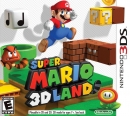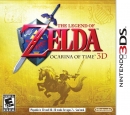Mr Puggsly said:
Even if optical discs are getting more expensive to produce, they're still significantly cheaper than a Switch cart. The optical discs are also being used by multiple devices including movies, they aren't dependent on a single console. I don't see a scenario where carts are cheaper to produce than discs, unless we move away from optical discs entirely. While carts that only hold 4-8GB are useless for most modern games. I anticipate next gen will use both Bluray and Ultra HD Bluray discs, Xbox consoles already use UHD drives so its cheap at this point. I feel like the compromise developers should make is Switch carts that have no game data on them, but give you access to a game. That way you technically own a game by having the cart and can sell it, trade it, etc. In my mind that's much better than a box with a download code. |
Yeah, but their usage is vaning fast in all their usage scenarios, hence why it's getting more expensive. Also, optical discs ain't interchangeable in production, you need specific presses for specific discs, a Blu-Ray press can't make CDs or DVDs, at least not out of the blue. Discs very much gain from mass production, because the machines to press the discs ain't cheap, and slower production raises costs very fast for them. The problem is that there are so many producers slowing each other down as the demand vanes.
For AAA games, 4-8GB discs are useless, I agree. But for Indies or Retro game collections, they do suffice most of the time. And yeah, we are moving more and more away from discs. Try finding a laptop with an optical drive these days, it's getting more and more difficult. Steaming and digital formats are taking over, and optical discs are more and more becoming a niche product. I'll have to dig to find the source, but afair the sales of Blu-ray discs is close to the one of DVDs in 2000 when VHS tapes where still ruling the market. The economy of scale which is making the optical discs so cheap less and less applies to them.
It won't affect the PS4/XBO anymore, though. But it could affect their successors. Getting more than 100GB on an optical disc is proving to become impractical (UV lasers get stopped by the slightest dust particles, hence why a blue laser is the practical limit for end-users), but with increasingly bigger textures and game worlds, that won't be enough for long anymore.
By contrast, cartridges don't face such a brick wall just yet. Expect them to catch up more and more over the next couple years. I think by end of this year, it won't make much of a price difference between a 25GB Blu-Ray disc and a 16GB cartridge, with the 32GB following close behind.
In fact, I wouldn't be surprised if someone would come up with a new standard next to SD cards (since Secure Digital isn't anywhere near secure) with a similar size, but much more safety. If they could get the Film Industry on board (which will be looking for a medium for 8K movies in the future for sure), then this could quickly replace the optical discs in general usage.
The Nintendo eShop rating Thread: http://gamrconnect.vgchartz.com/thread.php?id=237454 List as Google Doc: https://docs.google.com/spreadsheets/d/1aW2hXQT1TheElVS7z-F3pP-7nbqdrDqWNTxl6JoJWBY/edit?usp=sharing
The Steam/GOG key gifting thread: https://gamrconnect.vgchartz.com/thread/242024/the-steamgog-key-gifting-thread/1/
Free Pc Games thread: https://gamrconnect.vgchartz.com/thread/248138/free-pc-games/1/




































































